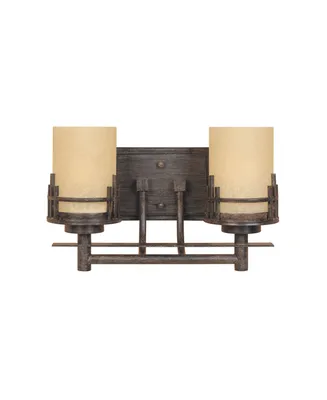Home
The Day Rommel Was Stopped: Battle of Ruweisat Ridge, 2 July 1942
Loading Inventory...
Barnes and Noble
The Day Rommel Was Stopped: Battle of Ruweisat Ridge, 2 July 1942
Current price: $22.95


Barnes and Noble
The Day Rommel Was Stopped: Battle of Ruweisat Ridge, 2 July 1942
Current price: $22.95
Loading Inventory...
Size: Paperback
*Product Information may vary - to confirm product availability, pricing, and additional information please contact Barnes and Noble
The true story of a forty-eight-hour showdown and the desperate gamble that prevented the Desert Fox from reaching the Suez Canal—and beyond.
George VI’s biographer, Sir John Wheeler Bennett wrote “The actual turning of the tide in the 2nd World War may be accurately determined as the first week of July 1942.” This book argues that it is possible to be even more exact: the tide turned at about 21.00 hrs. on 2 July 1942, when Rommel’s tanks withdrew for the first time since the fall of Tobruk on 20 June, or arguably since 14 January 1942 at El Agheila.
At dusk on Wednesday 1 July 1942, Rommel broke through the center of the British defenses at Alamein. His tanks had overwhelmed the gallant defense of the 18th Indian Infantry Brigade in the Deir el Shein at the foot of the Ruweisat Ridge. At that moment, and for the next twelve hours, there was no further organized defense between the spearhead of the Afrika Korps and Alexandria. Throughout the next day, only a handful of men and guns stood between Rommel and his prize.
In Cairo, black clouds of smoke from burning files showed that many people believed Rommel would not stop short of the Suez Canal, his stated objective. But, on Friday 3 July at 22.56 hrs., only 48 hours later, Rommel called off his attack and ordered his troops to dig in where they stood. The Delta was saved. Just a few weeks earlier, the 18th Indian Infantry Brigade, which took the brunt of the initial attack on 1 July, and the guns of the small column known as Robcol that stopped Rommel on 2 and 3 of July, had been in northern Iraq. General Auchinleck's desperate measure, pulling them 1,500 miles from Iraq into the Western desert, just succeeded but it greatly increased the price of failure.
If Robcol had failed, it is doubtful that Rommel would have stopped at the canal; it does not require much imagination to see his forces threatening to link up with Barbarossa in the Ukraine. This vivid account of the battle of Ruweisat Ridge, the beginning of the battle of Alamein, was written by an officer who was part of Robcol on the fateful day.
George VI’s biographer, Sir John Wheeler Bennett wrote “The actual turning of the tide in the 2nd World War may be accurately determined as the first week of July 1942.” This book argues that it is possible to be even more exact: the tide turned at about 21.00 hrs. on 2 July 1942, when Rommel’s tanks withdrew for the first time since the fall of Tobruk on 20 June, or arguably since 14 January 1942 at El Agheila.
At dusk on Wednesday 1 July 1942, Rommel broke through the center of the British defenses at Alamein. His tanks had overwhelmed the gallant defense of the 18th Indian Infantry Brigade in the Deir el Shein at the foot of the Ruweisat Ridge. At that moment, and for the next twelve hours, there was no further organized defense between the spearhead of the Afrika Korps and Alexandria. Throughout the next day, only a handful of men and guns stood between Rommel and his prize.
In Cairo, black clouds of smoke from burning files showed that many people believed Rommel would not stop short of the Suez Canal, his stated objective. But, on Friday 3 July at 22.56 hrs., only 48 hours later, Rommel called off his attack and ordered his troops to dig in where they stood. The Delta was saved. Just a few weeks earlier, the 18th Indian Infantry Brigade, which took the brunt of the initial attack on 1 July, and the guns of the small column known as Robcol that stopped Rommel on 2 and 3 of July, had been in northern Iraq. General Auchinleck's desperate measure, pulling them 1,500 miles from Iraq into the Western desert, just succeeded but it greatly increased the price of failure.
If Robcol had failed, it is doubtful that Rommel would have stopped at the canal; it does not require much imagination to see his forces threatening to link up with Barbarossa in the Ukraine. This vivid account of the battle of Ruweisat Ridge, the beginning of the battle of Alamein, was written by an officer who was part of Robcol on the fateful day.

















